5 Mistakes You Should Never Make When Fertilizing Your Lawn, a Pro Warns
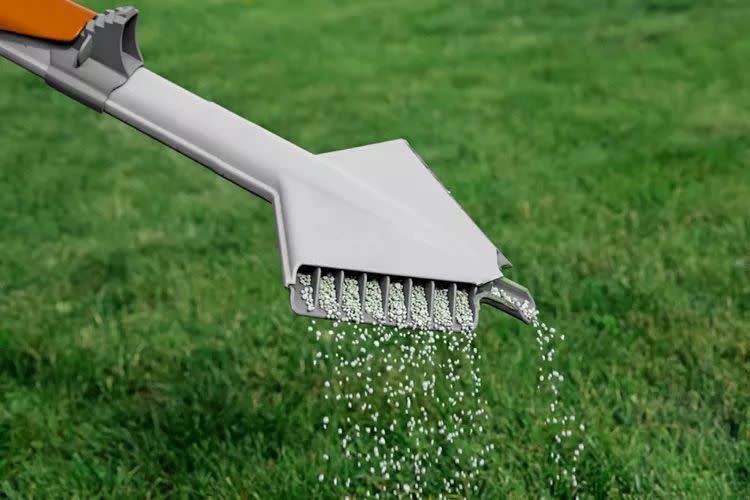
The Spruce / K. Dave
If you put forth the effort to fertilize your lawn, you already have great intentions. However, you can end up doing more harm than good if you aren't armed with the right knowledge and tools.
We caught up with Brian Feldman of TruGreen to learn about the five mistakes he often sees people make when fertilizing their lawns.
"Fertilizing your lawn may seem straightforward, but there are several vital steps to follow and nuances to grasp to ensure your lawn receives the required nutrients to stay healthy," he says.
Meet the Expert
Brian Feldman is the senior director of technical operations at TruGreen, a lawn care company.
Applying Too Much Fertilizer
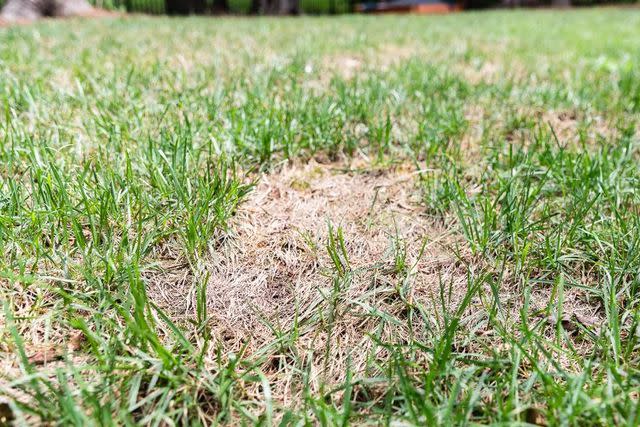
The Spruce / Ana Cadena
When it comes to fertilizing your lawn, there really is such thing as too much of a good thing. According to Feldman, applying an excessive amount of fertilizer could harm the soil and burn your grass.
Dousing your lawn with too much fertilizer destroys the soil's pH balance, which, in turn, leads to fertilizer burn.
Fertilizer burn causes your grass to turn brown or yellow, which is not the look you're going for. You'll need to water your lawn extra to help it recover.
Want more gardening tips? Sign up for our free gardening newsletter for our best-growing tips, troubleshooting hacks, and more!
Not Applying Enough Fertilizer
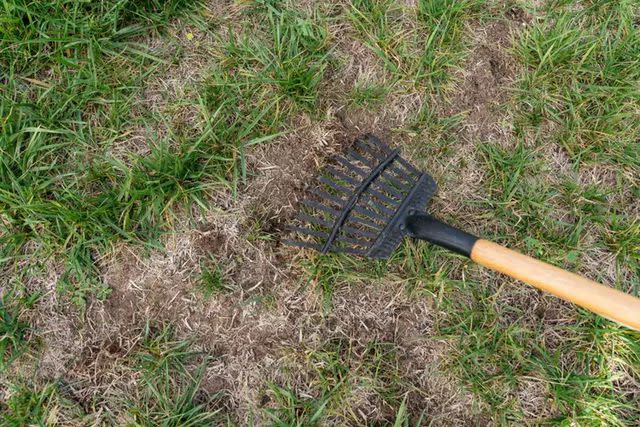
The Spruce / Almar Creative
On the other end, not applying enough fertilizer is also a common problem Feldman notices. Lawns that don't receive enough fertilizer often lack the proper nutrients required to grow and stay green.
Lawn Care Tip
You can spot an underfertilized lawn by its thin and patchy appearance, while a properly fertilized lawn will look more lush and dense.
Selecting the Wrong Fertilizer for Your Lawn Type
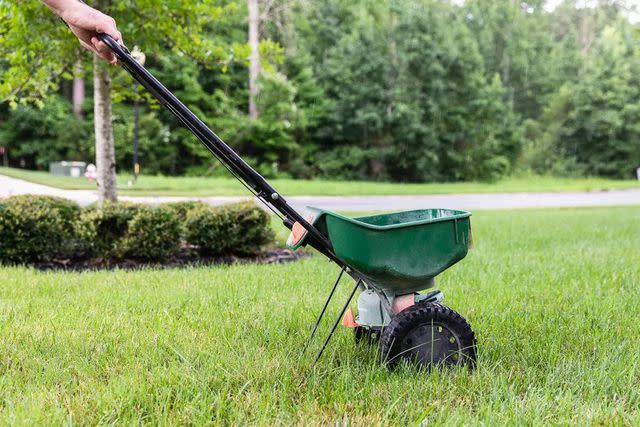
The Spruce / Ana Cadena
When searching for the right fertilizer for your lawn, you need to consider its specific needs.
"There are different fertilizers on the market to choose from, and the best one for your lawn depends on your growing zone," Feldman says. "Consider tapping a professional to provide expert direction on the type of fertilizer that is best for your lawn."
Commissioning a soil test from a professional can also help you determine what nutrients it's missing. Commercial fertilizers contain Nitrogen (N), Phosphorus (P), and Potassium (K), and the bag should list the percentages of each element it contains.
Fertilizing at the Wrong Frequency or Time
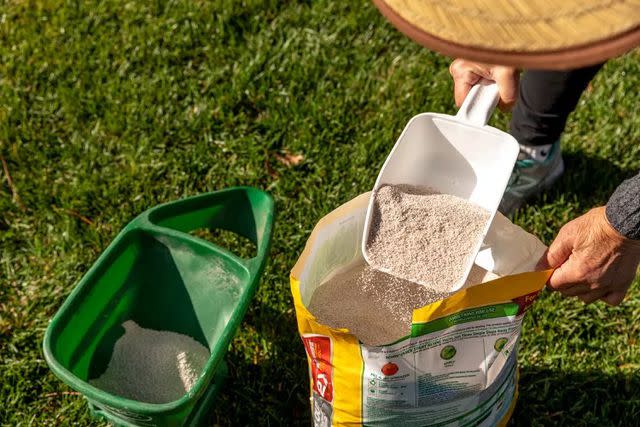
The Spruce / Jayme Burrows
Determining how often and when to fertilize your lawn can be one of the trickiest pieces of the equation, because it depends on several things. Feldman notes that you'll need to take the specific type of fertilizer, the climate, and the grass type into consideration.
Regardless of any of these factors, applying it in the spring is typically a good idea.
"Spring presents an important window of opportunity to achieve a thick and healthy lawn," Feldman says.
He also recommends applying nutrients to your lawn in the fall in preparation for the winter, but especially if you are also applying seed to a cool-season lawn that contains Kentucky bluegrass, perennial ryegrass, tall fescue, or fine fescue grass.
If you have a warm-season lawn such as Bermudagrass, Zoysiagrass, St. Augustine grass, or Centipede grass, you should feed it during the summer months and also in the fall. "You'll focus on applying potassium in the fall to help the turf through the winter," Feldman says.
Not Equipping Yourself With the Right Tools
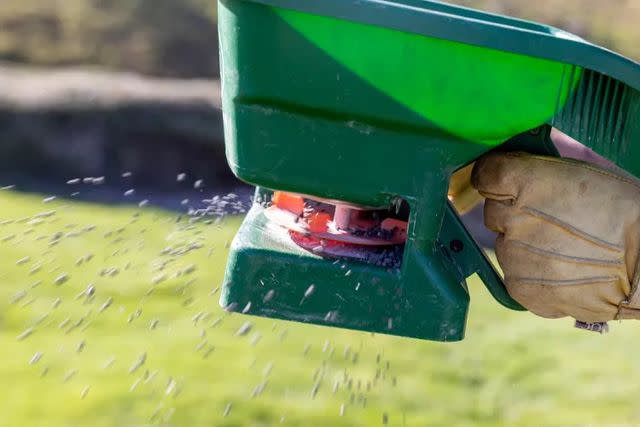
The Spruce / Jayme Burrows
Having the right tools on hand makes any job easier, fertilizing your lawn included.
"If homeowners choose to fertilize their lawn, they’ll likely also need to buy a spreader and fertilizer, calibrate the equipment, and ensure they apply the right amount of fertilizer to the lawn," Feldman says.
Before investing in all the tools, he encourages homeowners to consider adding up the cost and comparing it with the price to use a professional lawn care company, which can also save you time in the long run.
Regardless of which option you go with, the important thing is that you're putting in the effort.
"Fertilizing provides important nutrients to your lawn to help it grow," Feldman says. "Without fertilizing, you are much less likely to achieve a dense, green outdoor space that you can enjoy."
Read Next: Why So Many People Are Switching Their Lawns to a Clover Lawn
Read the original article on The Spruce.

